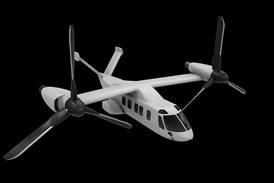IATA director general Tony Tyler is delighted his members are congregating in Dublin this year, heralding Ireland as a great example of a country that embraces commercial aviation. And as he makes his last appearance as the association’s boss, Tyler acknowledges that 2016 is a crunch time for the world’s governments to embrace the air transport sector if it is to succeed in implementing a global carbon-offset deal through ICAO.
The AGM’s host nation has consciously sought to develop aviation businesses, with aircraft leasing being the most prominent, says Tyler. “They clearly embrace aviation as a key pillar of their national economic development plan.”
Tyler, who will hand over the IATA reins to incoming director general Alexandre de Juniac on 1 September, expects the industry’s commitment to long-term sustainability will be the major talking point at this week in Dublin.
The clock is running down towards the crucial ICAO triennial meeting this September where airlines want governments to agree a mandatory carbon-offset scheme to avoid the forced introduction of “a patchwork of conflicting taxes and charges”.
“Airlines are generally well aligned on the need for a market-based measure and on the fact that a global offsetting scheme is the type of measure that will best suit the requirements,” Tyler says. “And the industry is well-aligned on a number of the design elements.
“There remains some work to be done on other design elements, but ultimately we’ve got to recognise that it’s governments that are going to decide this. It’s very important that the airlines take the opportunity of the AGM to send a powerful message to governments that we are, as an industry, collectively in favour of developing a market-based measure and having it implemented so we can achieve our goal of carbon-neutral growth from 2020.”
Tyler says September’s ICAO Assembly is “the opportunity to achieve that, and therefore an opportunity that must be grasped. There are four years to get the job done. And that’s long enough, providing there’s a will on all sides to achieve it.”
Air safety remains high on the IATA agenda and the mysterious loss of an EgyptAir A320 has renewed calls for the industry to examine ways to introduce real-time streaming of flight data. However, Tyler says it is “important keep the whole discussion in context”.
“With the amount of data being produced by systems on aircraft, it simply wouldn’t be realistic to think that all that data is going to be recorded and streamed for every aircraft. We’d drown in all the data,” says Tyler.
“So if you are going to talk about streaming, you’d have to decide what data is streamed and what is it going to cost, and is the benefit is really worthwhile if the cost is very high.”
One of IATA’s key achievements during Tyler’s five-year term has been the launch and implementation of its New Distribution Capability. While admitting he would have liked to have seen a faster progress, Tyler says he’s satisfied with what has been achieved so far.
“We’ve got a number of airlines already live, but the adoption of NDC was never going to be a big-bang event. It was always going to be incremental progress. As more applications are developed I think we’ll see more people adopt them in the coming years.”
A year on from the AGM in Miami where Tyler alluded to “underlying tensions” between the Gulf carriers and the US majors regarding alleged illegal subsidies, he does not expect the row to brew up again in Dublin. IATA has consistently remained neutral on the subject, and Tyler says the dispute is now “in the hands of governments to decide if they want to pursue the argument further”.
While some of his members may be at loggerheads at the moment, Tyler’s IATA legacy is very much about collaboration. “I think over the last five years we’ve done some good things, what we’ve done with NDC, on IOSA [safety oversight] and other aspects of safety such as tracking and conflict zones.
“The thing I hope I’ve changed is that IATA’s seen as a much better partner now, and is therefore more effective. When I joined, I think people respected IATA but they didn’t always enjoy working with IATA.”
Tyler says he’s handing over to a very well qualified successor in Air France-KLM boss de Juniac. “Alexandre is a very smart guy and he’ll bring aspects to the job I didn’t, both in terms of his experience and his qualification. The fact he’s worked in government will be very useful and he has a broad industry background in both the airline and manufacturing business.”
After averaging 160 flights annually while in the IATA hot seat, Tyler is now looking forward to spending a little less time “up in the air” when he heads back to Hong Kong to enjoy his newfound freedom. “I’m not complaining,” says Tyler, “but five years of that is quite hard work – and I’m not getting any younger!” ■
Source: Cirium Dashboard























